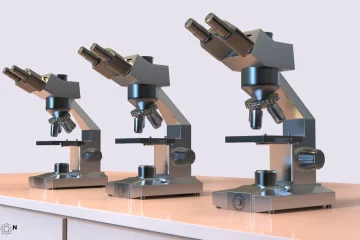What comes to your mind when you come across words like ‘depression’, ‘anxiety’, or ‘stress’? Well, many people assume them to be the same thing. But, this is not correct. Although all these concepts are related to mental health, they have a different meaning. As we know, taking care of mental health is as important as physical health, understanding depression is more important than ever.
Transcranial Magnetic Stimulation (TMS) therapy is the ultimate solution to depression when traditional treatments fall short. So, whether you are eager to learn about this innovative treatment approach, or want to understand the important aspects of depression, you are at the right place. In this post, we’ll share all you need to know about depression, and TMS therapy. Let’s get started –
Understanding Depression: Causes, Symptoms, and Treatments
Depression is a complex mental health condition characterized by persistent feelings of sadness, hopelessness, and disinterest in activities that were once enjoyable. It affects how a person thinks, feels, and handles daily activities, often impacting relationships and overall well-being.
Causes of Depression
- Biological Factors – Changes in neurotransmitter levels, hormonal imbalances, and genetics can contribute to the onset of depression.
- Psychological Factors – Past trauma, chronic stress, low self-esteem, and certain personality traits can increase vulnerability to depression.
- Environmental Factors – Major life events such as loss, financial difficulties, or prolonged isolation can trigger or exacerbate depressive episodes.
Symptoms of Depression
- Emotional Symptoms – Persistent sadness, feelings of emptiness, and a sense of hopelessness.
- Cognitive Symptoms – Difficulty concentrating, making decisions, or remembering details.
- Physical Symptoms – Changes in appetite and weight, sleep disturbances, and chronic pain without a clear physical cause.
- Behavioral Symptoms: Loss of interest in activities once enjoyed, social withdrawal, and thoughts of self-harm or suicide.
Treatment of Depression
Depression is a treatable condition, and a variety of effective treatments are available to help individuals manage their symptoms and improve their quality of life. Here are some of the most common and effective treatment options:
1. Psychotherapy – Psychotherapy, or talk therapy, involves working with a trained therapist to explore thoughts, emotions, and behaviors to develop coping strategies and address underlying issues contributing to mental health conditions.
2. Medication – Medications can help correct chemical imbalances in the brain that contribute to depression. In some cases, medications are used in combination with antidepressants to treat more severe forms of depression or when there are co-existing mental health conditions.
3. Lifestyle Changes – Regular physical activity can help reduce symptoms of depression. A balanced diet rich in nutrients can also support brain health and improve mood.
4. Mindfulness and Meditation
Practices such as mindfulness meditation can help individuals manage stress, increase self-awareness, and improve emotional regulation.
5. Transcranial Magnetic Stimulation (TMS) – TMS is a non-invasive procedure that uses magnetic fields to stimulate nerve cells in the brain, which can alleviate symptoms of depression, especially when other treatments have not been effective.
How TMS Therapy Can Help With Depression?
Now that you are familiar with the basics of depression, let’s understand about the TMS therapy, one of the most effective treatment options for depression.
Transcranial Magnetic Stimulation (TMS) therapy is an innovative treatment option to alleviate the symptoms of depression, particularly in individuals who have not responded well to traditional treatments such as medication and psychotherapy.
TMS therapy involves the use of magnetic fields to stimulate specific areas of the brain that are involved in mood regulation. An electromagnetic coil is pressed up against the scalp, close to the forehead, during a TMS session. The coil generates magnetic pulses that pass through the skull and stimulate nerve cells in the brain’s prefrontal cortex, which is known to play a key role in depression.
Benefits of TMS Therapy
Non-Invasive Treatment – Unlike more invasive procedures such as Electroconvulsive Therapy (ECT), TMS therapy does not require anesthesia or induce seizures.
Minimal Side Effects – TMS therapy is generally well-tolerated, with the most common side effects being mild discomfort at the treatment site and occasional headaches.
Targeted Treatment – TMS therapy specifically targets areas of the brain that are underactive in individuals with depression.
Effectiveness of TMS Therapy
TMS therapy has been particularly effective for individuals with treatment-resistant depression, meaning they have not found relief from symptoms despite trying multiple antidepressant medications and psychotherapies.
Many individuals experience lasting benefits from TMS therapy. Although the exact duration of symptom relief can vary, some people report improvement that lasts for several months or even longer after completing a course of TMS treatment.
Wrapping Up
A prevalent and crippling illness that affects millions of people globally is depression. Traditional approaches like medication and psychotherapy have helped many, but for those who struggle with treatment-resistant depression, Transcranial Magnetic Stimulation therapy emerges as a groundbreaking option.
If you or someone you know is battling depression, it is important to seek professional help and explore all available treatment options. To explore more about TMS therapy in Everett, you can reach out to Shifa Health for professional guidance. Visit the website to explore more!



